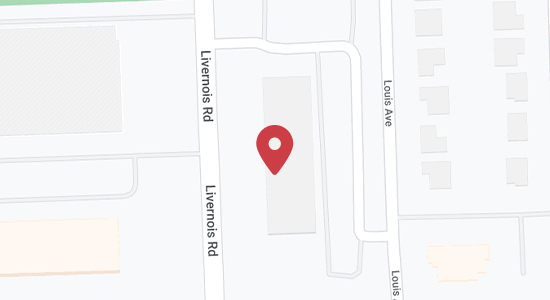- Free Consultation - Call 24/7: 248-515-6583 Tap Here to Call Us
What is Sexual Violence?
Despite strict legal prohibitions, different jurisdictions have struggled to prevent sexual violence as it remains prevalent across the world. It is a serious public health problem that significantly impacts health and overall well-being. Sexual violence affects many communities and people, regardless of age, race, sexual orientation, and gender.
Sexual violence attracts severe penalties, including life imprisonment, lengthy prison sentences, compulsory registration as a sex offender, and hefty fines. As a result, anyone accused of sexual violence must get legal assistance, regardless of the severity of the offense.
Blank Law, PC is a Michigan-based law firm specializing in defending people accused of sex crimes. Our sex crimes lawyers are ready to assist you or your loved one if you have been charged with sexual violence.
What is Sexual Violence?
Sexual violence is an encompassing and non-legal term for all sex crimes. It is also defined as any form of an unwanted or non-consensual sexual act. Sexual violence includes offenses like statutory rape, sexual harassment, sexual abuse, child molestation, sexual exploitation, and indecent exposure.
According to the World Health Organization (WHO), sexual violence is any sexual act or attempted sexual act committed through force or coercion, regardless of the relationship between the victim and perpetrator. It covers acts ranging from verbal harassment and sexual exploitation to forced sexual penetration. Sexual coercion includes psychological oppression, threats, blackmail, or physical or psychological attacks.
Sexual violence involves marital infidelity, domestic violence, intimate partner violence, sexual abuse, physical or sexual abuse of people with disabilities, rape by strangers, child molestation, or child marriage. It also includes sexual slavery, forced prostitution, forced marriage, forced abortion, and denying someone the right to use contraception.
Sexual violence may occur physically, online, or through technology. Sharing or posting sexual pictures of others without consent or non-consensual sexting also amounts to sexual violence. It may be committed by a stranger, acquaintance, neighbor, or family member. It could also be an intimate sexual violence or domestic violence situation. Other common perpetrators of sexual violence include co-workers, partners, or people in positions of authority over the victim, such as employers or teachers.
People assume that all sexual violence victims are women, which is reasonably accurate given that 91% of sexual violence survivors are female. However, sexual violence also affects men and children. According to the Rape, Abuse, & Incest National Network, 1 out of every 10 sexual violence victims is male.
The effects of sexual violence are devastating. They include depression, suicide, sexually transmitted diseases, military sexual trauma, stigmatization, and sexual victimization. In intimate sexual violence cases, it could also lead to divorce and strained relationships.
Types of Sexual Violence
Sexual violence encompasses various sex crimes, including misdemeanor sex crimes, like indecent exposure, and felonies, like date rape charges and statutory rape. Some of the most common types of sexual violence include, but are not limited to:
Sexual Assault
Sexual assault is a broad term for unwanted sexual contact or penetration for sexual pleasure. It includes offenses like rape or touching another person intimately without their consent to achieve sexual gratification. Therefore, acts like kissing, touching another person’s breasts or genitals (even through their clothing), and manipulating or forcing someone to engage in a sexual act also constitute sexual assaults.
Sexual assault can occur at any time and place, and it may be an intimate partner violation. Perpetrators can commit sexual assault using any part of their bodies, including their genitals, fingers, or tongue.
Rape
Unlike sexual assault with its broader scope, the definition of rape is narrower. It refers to unwanted or forced sexual intercourse. Rape is a form of sexual assault involving the sexual penetration of a person’s vagina, anus, or mouth. It is also committed when sexual intercourse occurs with a victim who cannot give consent due to mental or physical disabilities or intoxication.
Rape can occur between strangers, or it could be a case of intimate partner violence or domestic and sexual violence. Different forms of rape include marital rape (between spouses or intimate partners), date rape (between people in a romantic relationship), acquaintance rape, incest (between family members), and drug-facilitated rape (when a rape drug is used to make the victim unconscious).
Attempted Rape
The law also severely punishes unsuccessful attempts to sexually assault or rape someone, including cases of domestic and sexual violence. Attempted rape occurs when an offender who intends to have sex with a person cannot complete the act successfully. The primary difference between rape and attempted rape is that sexual penetration did not occur even though the perpetrator intended to have intercourse with the victim.
Statutory Rape
It is a form of rape involving victims who are minors. Statutory rape refers to a sexual act with someone below the legal age of consent, which differs across various states. Even if the victim consented to sexual relations, if they have not reached the age of consent, the law does not regard the act as consensual. Thus, only sexual behavior between adults is considered consensual.
Sexual Harassment
It is any unwelcome sexual behavior or unwelcome conduct of a sexual nature that is intimidating, humiliating, or offensive. Sexual harassment includes unwanted sexual comments, requests for sexual favors, and unwanted sexual advances. Examples of sexual harassment are making suggestive comments, leering at someone else, and displaying sexually explicit pictures or videos.
Sexual Exploitation
It involves the attempted or actual abuse of power, trust, or vulnerability for sexual purposes. Thus, sexual exploitation occurs when a person in a position of authority or influence, like an employer, teacher, or clergy member, misuses their position to get someone else to perform sexual acts.
Sex Trafficking
It is a form of modern slavery or human trafficking where people are exploited or coerced into commercial sex. According to the Trafficking Victims Protection Act 2000, sex trafficking is “the recruitment, harboring, transportation, provision, obtaining, patronizing, or soliciting of a person for a commercial sex act.” victims of sex trafficking are typically women and children.
Child Sexual Abuse
While child abuse refers to any form of abuse or neglect against a minor, childhood sexual abuse focuses on abuse of a sexual nature. Child sexual abuse is also referred to as child molestation. It describes any situation where an adult or adolescent engages in a sexual activity with a child. Also, activities involving minors that do not include sexual penetration are usually termed child molestation.
Child Pornography
Child pornography is a sexual violence crime under federal and state laws. It is called child sexually abusive activity in some states, like Michigan. Child pornography refers to a film, sound recording, picture, computer-generated image, slide, video, or depiction of a child engaged in sexual misconduct. Child pornography offenses include the production, possession, and distribution of child sexually abusive material.
Indecent Exposure
It is a misdemeanor offense, commonly charged when people expose their private parts in public. When a person is caught urinating in public, participates in flashing, or reveals a private part of their body where others can see them, they may be charged with indecent exposure. This offense becomes aggravated indecent exposure if aggravating circumstances exist, such as fondling one’s private parts in public or committing indecent exposure in the presence of a child.
Internet Sex Crimes
They refer to any kind of sex crime committed via the internet. Internet sex crimes include soliciting prostitution online, child molestation, sexting, child pornography, sextortion, and sex trafficking.
Can You Be Charged with Sexual Violence Under Michigan Criminal Law?
Sexual violence is referred to as criminal sexual conduct (CSC) in Michigan. It is a broad term for any form of non-consensual or unwanted sexual contact obtained through coercion, intimidation, or the threat of physical violence.
There are four CSC degrees under Michigan law, which include a wide spectrum of sex offenses and degrees of sexual coercion or intimidation. Examples include rape, intimate partner violence, domestic violence involving a sex crime, child molestation, and indecent exposure, which are all classified as CSC in Michigan. Crimes involving sexual penetration often fall under criminal sexual conduct 1st degree and criminal sexual conduct 3rd degree. Unwanted sexual touching, however, falls under the criminal sexual conduct 2nd-degree and criminal sexual conduct 4th-degree categories.
The most serious sexual violence offenses are those classified as criminal sexual conduct 1st degree. Any crime under this CSC degree involves sexual penetration, including penetration of the mouth, anus, or vagina. Examples include rape, sexual assault, and child molestation.
Also, for a sexual violence crime to be considered as 1st-degree CSC, any of these aggravating circumstances may have occurred:
- The alleged victim is a person under 13 years old
- The victim is below 13 and related to the offender
- The perpetrator hurt the victim physically
- The perpetrator used a weapon or what the victim perceived to be a weapon while engaging in sexual penetration
- The defendant forced sexual penetration on the victim using their position as a school official, teacher, staff member, volunteer, or contractor
- The victim, who was already physically or mentally unable, has been physically harmed by the defendant
The most serious offenses involving non-consensual sexual contact are referred to as criminal sexual conduct 2nd-degree. A person may be charged with 2nd-degree CSC for touching another person for sexual enjoyment or arousal without that person’s consent. These types of offenses do not include sexual penetration. Examples include child molestation, intimate partner sexual violation, and sexual battery.
2nd degree CSC occurs when:
- A victim under the age of 13 is involved
- The victim has a physical or mental impairment
- The perpetrator forced the victim into the act while acting in a position of power over them, such as a teacher, school administrator, substitute teacher, or a school employee
- The victim, who is related to the offender, is aged between 13 and 16
- Unwanted sexual contact takes place while another felony is being committed
- The victim was physically hurt during the commission of the offense
- The offender utilized force or coercion to commit the offense
- During sexual contact, the offender had a weapon or what the victim thought was a weapon
Criminal sexual conduct 3rd degree is like 1st-degree CSC because it includes crimes dealing with non-consensual sexual penetration. Statutory rape is an example of 3rd degree sexual assault. Instances where a person may be charged with this criminal offense include:
- The alleged victim, who is a person 13 thru 15 years of age, was subjected to sexual penetration or battery
- The perpetrator used excessive force to engage in the unwanted sex act
- The defendant knew that the victim was physically or mentally incapable of granting consent at the time of the sexual penetration
- The perpetrator is a family member of the victim
- The victim is a 16–18 year old and the perpetrator works at the victim’s school as a teacher, administrator, employee, contractor, or substitute teacher
- The victim is in special education and is between the ages of 16 and 26
- The perpetrator works for a childcare facility or foster group home to which the victim belongs
Like CSC 2nd degree, criminal sexual conduct 4th-degree also covers offenses involving unwelcome sexual contact. Of all the degrees, it bears the least serious charge. It occurs when there is non-consensual sexual contact with another person’s breasts, vagina, anus, penis, and inner thighs. Adults, people who are physically or psychologically unable to consent, or close family members are frequently the victims of this degree of offense. Sexual harassment is an example of this offense.
Penalties for Sexual Violence?
People convicted of any sex crime suffer harsh punishments under state and federal laws. These penalties include a prison sentence, community service, fines, probation, lifetime electronic monitoring, and compulsory registration with the Michigan Sex Offender Registry.
Generally, misdemeanor offenses carry lighter sentences, usually a maximum jail term of one year. For example, the penalty for indecent exposure is a jail term not exceeding one year, a $1,000 fine, or both. In addition, the punishment for aggravated indecent exposure is a two-year prison term, a $2,000 fine, or both.
However, felonies like producing child pornography are punishable by a fine of up to $100,000 and a prison sentence of up to 20 years. The penalty for disseminating sexually explicit content to children is a seven-year prison term and a $50,000 fine. Possession of child pornography carries a potential four-year prison term and a $10,000 fine.
On the other hand, the victim’s age and the nature of the sexual activity determine the penalty for child molestation. For the CSC 1st-degree Michigan penalty, life imprisonment is the maximum sentence. However, if it comes under the CSC 2nd-degree Michigan penalty or the CSC 3rd-degree Michigan penalty, it is punishable by a maximum term of 15 years in jail. If it is classified as 4th-degree CSC, the CSC 4th-degree Michigan penalty could be up to 2 years in jail, a $500 fine, or both.
Additionally, those guilty of child sexual abuse must register with the child abuse registry. The criminal history of the sex offender is made public by Michigan’s new law on the child abuse registry.
Other consequences of sexual violence claims include losing your job or struggling to get employed subsequently. You could also lose your professional license if you are a lawyer, doctor, teacher, pharmacist, or working any job requiring a license.
Legal Defenses to Sexual Violence in Michigan
The best method to counter claims of sexual violence is with a solid defense. Anyone who accuses you of sexual assault must prove that the accusation is true. The prosecution’s responsibility is to establish beyond a reasonable doubt that you committed the crime. Your prospects of acquittal from the charges against you will increase if you can undermine the prosecution’s case.
You need to hire an experienced criminal defense attorney to guide you in developing a criminal sexual conduct defense strategy. To win your case at trial, you must choose the correct sex crimes defense lawyer. With excellent legal representation, you can decrease the severity of the charges or get them dropped.
The most common defense against sexual violence claims is consent. The law is not against consensual sexual relations between adults. Therefore, if the alleged victim is 17 or older and the sexual act was consensual, consent could serve as a legal defense in such circumstances.
However, consent does not apply if the victim is below the legal consenting age because such individuals cannot grant consent. Also, consent from any mentally or physically incapacitated victim is invalid.
Also, if you have an honest and reasonable belief that the alleged victim is an adult, it could serve as a defense in your case. It may not result in the charges against you being dropped, but it could reduce the severity of the punishment.
Mistaken identity is another common legal defense against sexual violence accusations. In some cases, victims have trouble identifying offenders, and it may be due to drunkness or forgetfulness. In such cases, if you can prove that the police have your identity mixed up with the perpetrator, it could prevent sexual violence claims in the circumstances.
Having a solid alibi is another effective defense to sexual violence claims. If you were not at the crime scene and you have enough evidence supporting it, you could succeed in eliminating the criminal charges against you.
Contact Blank Law, PC to Speak with a Criminal Defense Attorney

Experiencing sexual violence accusations can be terrifying, and you need a criminal sexual conduct attorney if you want to succeed at trial. Nicole Blank Becker is a top CSC defense attorney with a proven track record of defending people accused of sexual violence. She is available and willing to help you create the best sexual assault defense strategies in your case. Contact her to schedule your Michigan criminal defense attorney free consultation.

















